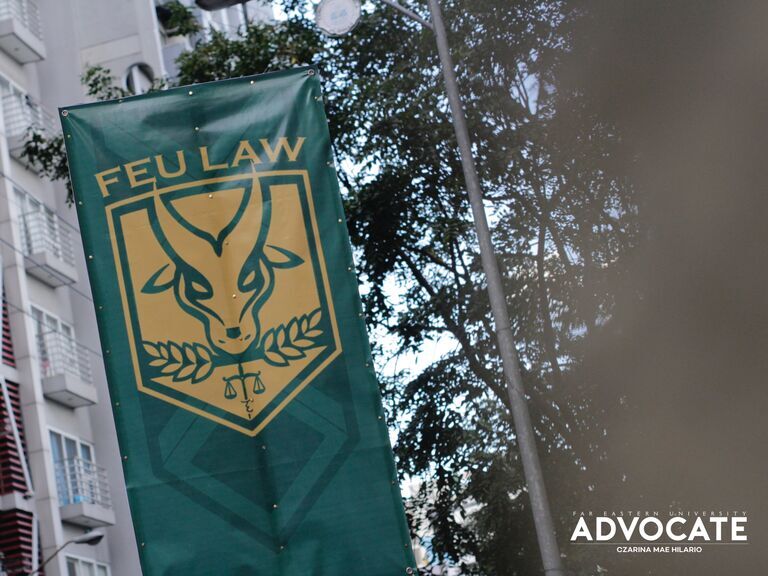
UHS advises using face masks amid pertussis surge
- March 28, 2024 07:41
FEU Advocate
November 03, 2023 09:08

Far Eastern University (FEU) Department of Biological Sciences integrated biodiversity and encouraged students to conduct research in the ‘Biological Sciences Faculty Research Colloquium 2023’ held last October 26 at the Arts Building Room 309.
With the theme ‘A Guide to Scientific Research and Collection Permits,’ the academic conference guided students in writing a research or thesis and steps in getting a permit to collect wildlife.
Institute of Arts and Sciences (IAS) Dean Diego Jose Abad emphasized research as universal for all members of the academe to learn.
"Without research there's no other purpose for school … The business of education is the exchange of information and the exchange of ideas," he shared.
The seminar invited three Department of Biological Sciences instructors, Department Chair Dr. Dulce Marie Nisperos, faculties Glenn Cedrick Gamus, Msc., and Lawrence Timbreza who gave importance to research in to produce researches that promote biodiversity and conservation.
Each speaker discussed the backgrounds, methodologies, and conclusions of their respective researches.
Nisperos discussed her study with fellow faculty Dr. Anthony Ian Pag-Ong that assessed the management effectiveness of the Masinloc-Oyon Bay Protected Landscape and Seascape (MOBPLS), the first and only marine protected area in Central Luzon.
Their findings showed the improvement of MOBPLS through the dedicated and intensified projects of the locals in preserving protected areas, ecotourism, and critical habitats.
“We want to gayahin sila in the future. Be serious with your research din. Gawin natin ‘yung tama (We want to mimic them in the future. Be serious with your research too. Let us do what is right),” she included.
Moreover, Gamus shared his accidental discovery of Pseudobangia corderoli sp. nov., a new filamentous bangialean alga in Northern Luzon.
His findings highlighted the importance of microbiology and scrutiny in DNA analysis to determine new taxons or species.
“Maraming ‘di resolved na genera (There are many unresolved genera),” he added.
Gamus detailed the dilemmas he encountered while conducting his research and shared how he surpassed those.
Lastly, Timbreza discussed his comparative study on the antimicrobial activities and metabolic profiles of five usnea species from Mt. Amuyao, Mountain Province.
Usneas, a lichen or a composite organism that is both algae and fungi, are studied for its potential as an agent against gram-positive bacteria.
“The misuse of antibiotics is one of the main factors of the rise of drug resistance in bacterias,” he said.
Timbreza also determined that the ability of an organism to change its physical characteristics is caused by wrongdoings to the environment.
Pag-Ong ended the program by advising the participants to answer scientific endeavors and take the aforementioned works as one of many researches to fulfill this vision.
“Habulin natin ‘yung gap for universities in terms of research (Let’s chase the gap for universities in terms of research),” he encouraged.
FEU provides priority and support in research through several grants and technologies including laboratories, partnership with external agencies, and the FEU Library Periodicals section.
- Mark Vincent A. Durano
(Photo Courtesy of Christalen Grace Balcita)









